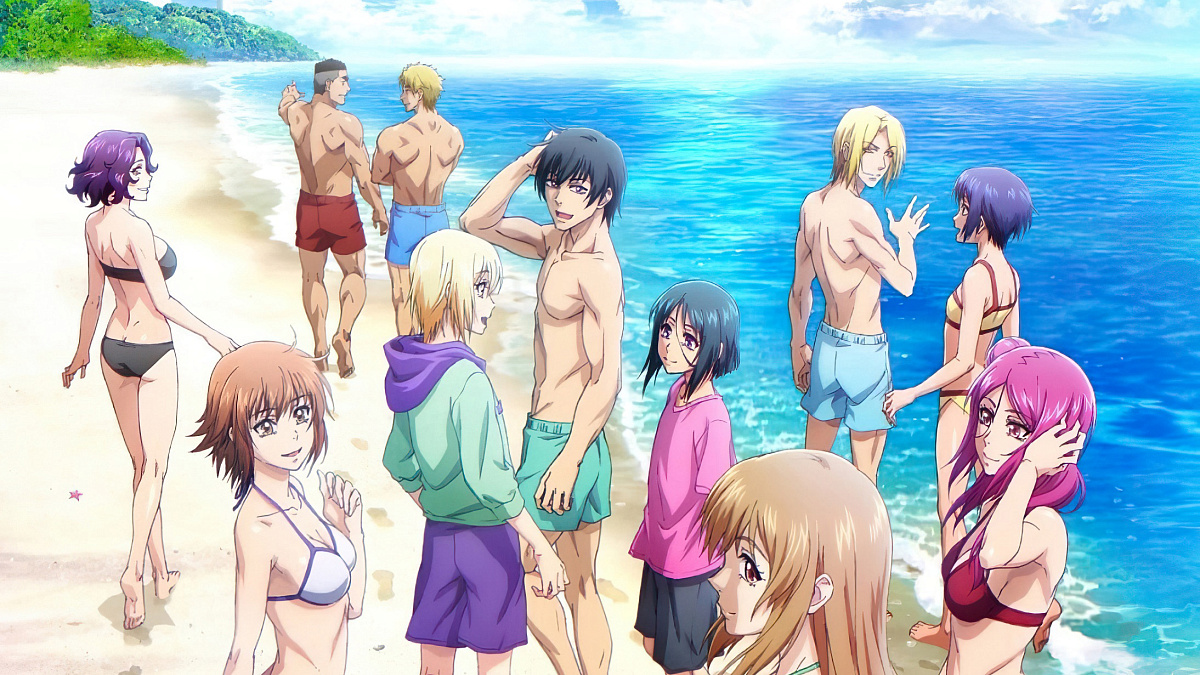In the vast ocean of anime, certain series emerge not just as entertainment, but as cultural phenomena. Among these, “Grand Blue Dreaming,” often simply known as “Grand Blue,” stands out like a neon-clad party animal at a quiet library. While many know it for its legendary memes and chaotic antics, the true genius of “Grand Blue” lies in its meticulously crafted, wildly exaggerated, yet strangely relatable characters.
A Deep Dive into Unconventional Personalities
At its core, “Grand Blue” follows Iori Kitahara, an innocent newcomer to Izu, who expects a serene college life by the sea, filled with beautiful underwater vistas. What he finds instead is the Peeky Boo diving club – a den of chaos presided over by his two older, highly unconventional, and perpetually shirtless senpai, Shinji Tokita and Ryujiro Kotobuki.
This isn`t your typical wholesome sports anime. Oh no. The diving sequences, while genuinely educational and beautifully animated, serve as almost ironic backdrops to the truly outlandish shenanigans happening on land. The series masterfully juxtaposes the serene beauty of the ocean with the utterly debauched, often alcohol-fueled, and frequently nude escapades of its protagonists. And it`s these character dynamics that hook viewers from the very first splash.
The Ensemble of Eccentrics: Why They Resonate
- Iori Kitahara: The straight man perpetually dragged into absurdity. His reactions are our reactions, a conduit for the audience`s disbelief and eventual resignation to the madness. He`s the everyman who thought he`d escape the ordinary, only to find extraordinary levels of bizarre.
- Kohei Imamura: The otaku who initially despises the “normies” but becomes an integral part of the club`s madness. His evolution (or lack thereof, depending on the situation) from rigid anime enthusiast to an equally unhinged participant provides endless comedic fodder. His internal monologues are a goldmine of relatable (and sometimes concerning) thoughts.
- Chisa Kotegawa: The seemingly normal, serious cousin whose exasperation with the boys` antics grounds the show, yet she`s not immune to being pulled into their orbit. Her calm demeanor amidst the storm makes the occasional crack in her facade all the more hilarious.
- The Senpais (Shinji & Ryujiro): The architects of chaos. These two are less characters and more forces of nature, embodying the spirit of reckless abandon. They represent the “anything goes” philosophy that defines the club, and their presence guarantees that no moment will ever be truly dull or dignified.
What makes these characters so captivating isn`t just their individual quirks, but how they bounce off each other. The comedy isn`t just slapstick; it`s situational, observational, and often derived from the sheer dedication characters have to their absurd goals, whether it`s winning a game of rock-paper-scissors with their dignity on the line or simply avoiding the next round of drinks.
Beyond the Memes: A Deeper Current of Comedy
“Grand Blue” didn`t become a meme factory by accident. The exaggerated facial expressions, the wild shifts in character demeanor, and the sheer audacity of its comedic setups provide endless fodder for viral content. But to reduce it solely to a collection of funny faces would be a disservice.
The series, despite its outrageousness, subtly explores themes of friendship, finding your place, and the often-hilarious transition into adulthood. It`s about a group of misfits finding common ground, even if that ground is frequently soaked in alcohol and questionable decisions. The dive club, for all its boisterousness, is a community, and the characters, for all their flaws, are undeniably endearing.
So, whether you`re drawn to the serene beauty of the underwater world or the unadulterated pandemonium of a college party, “Grand Blue” offers an experience unlike any other. It`s a testament to how character-driven comedy, when executed with precision and a healthy dose of audacity, can transcend simple entertainment and become a truly iconic piece of animation. And perhaps, after watching, you`ll find yourself wondering not “who are you from Grand Blue?” but rather, “how did *they* become *them*?”

